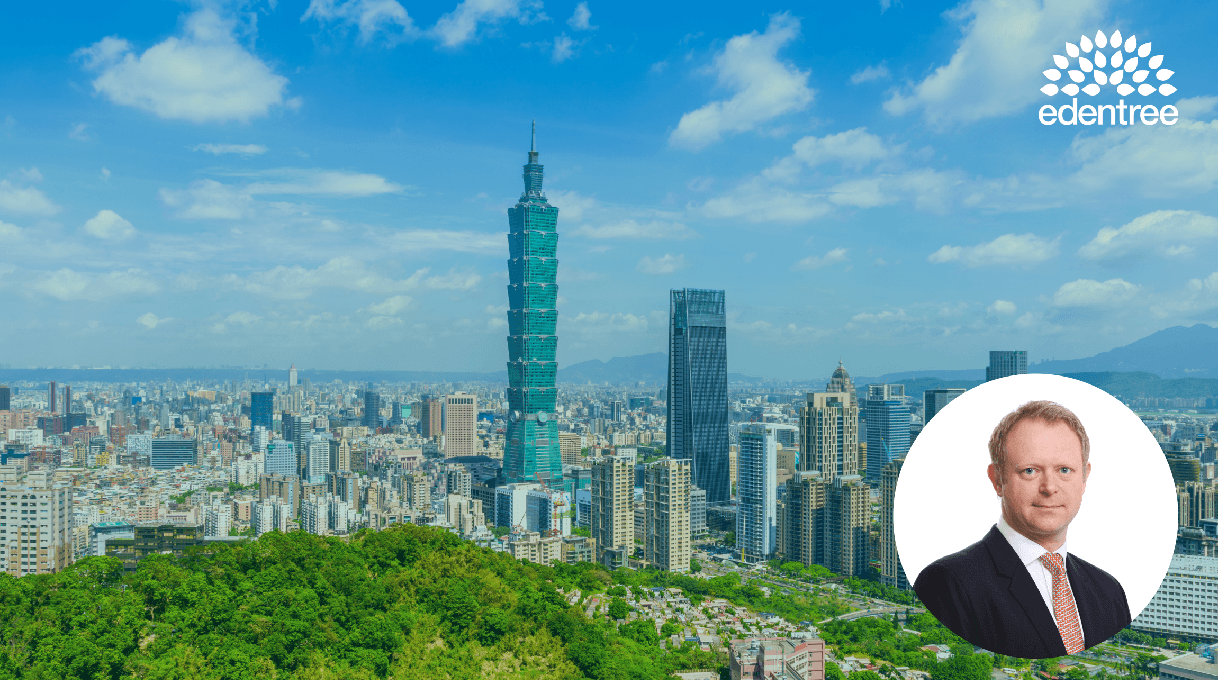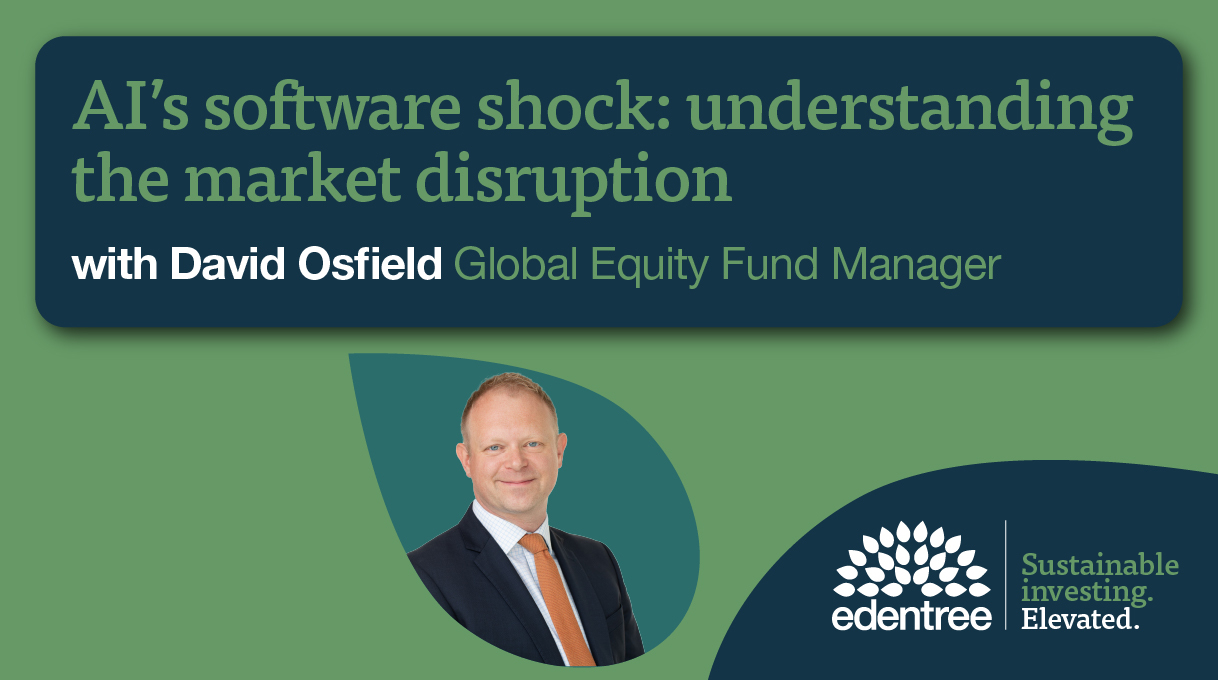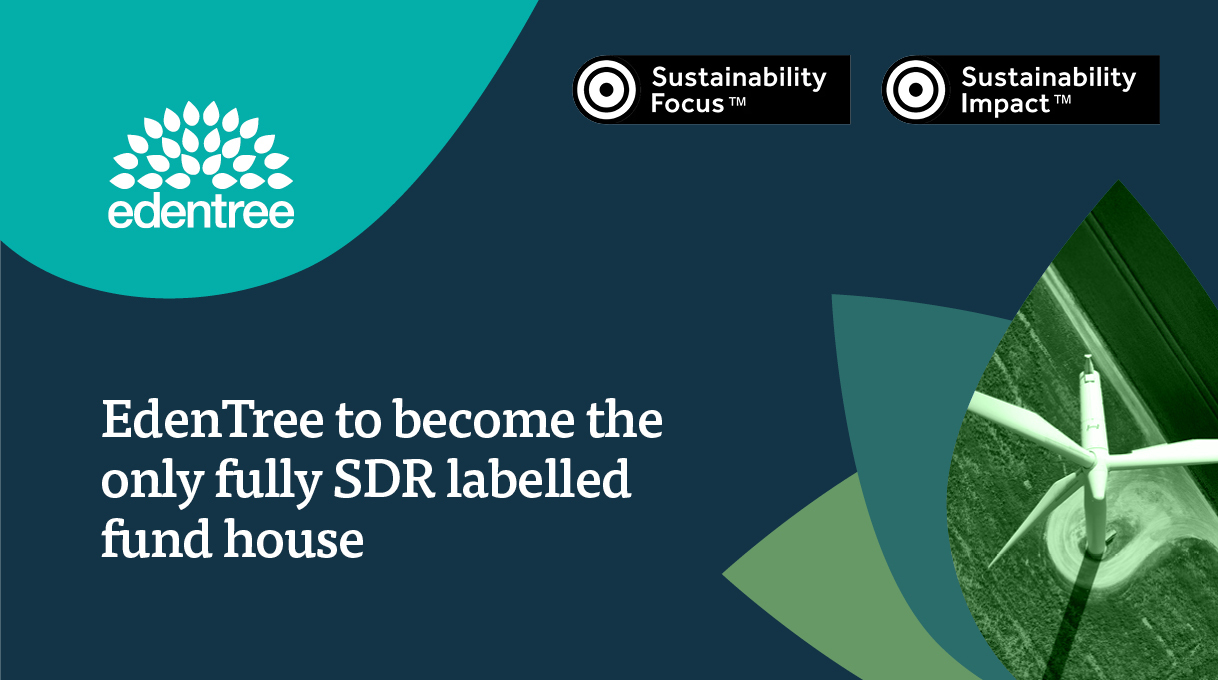For over a decade, the US equity market has climbed to ever-greater heights, powered by innovation, technological dominance, ultra-low interest rates and the expectation of exceptional growth.
But now, the US is facing multiple headwinds. Trade tariff announcements sent US equities plummeting in April, with continuing uncertainty surrounding the US’ fiscal position contributing to a sell-off in the US dollar over the past few months. The escalation of US debt fears has been driven by the Trump Administration unveiling the ‘Big, Beautiful Bill,’ which could add a further $3.9 trillion onto the country’s already looming debt pile1. Although the US equity market has since bounced back, there are fears this rise isn’t based on a genuine improvement in circumstances, raising the question of whether the market is being complacent when considering the current risks.
In light of this, an increasing number of investors are considering moving capital away from the US and towards global equities. However, many passive ‘global’ funds track the performance of the FTSE World2 or MSCI World3. As these indices currently have between 67% and 72% weighting to the US, a reallocation of capital may still expose portfolios to the very risks they wished to avoid.
In contrast, actively managed global equity funds have the flexibility to allocate capital selectively, allowing fund managers to seek opportunities from around the world and adjust their exposure as conditions evolve. At EdenTree, our Global Equity Fund (GEF) team uses this flexibility to navigate through periods of uncertainty while establishing a geographically well-diversified portfolio of global companies.
The US equity market: highly correlated and highly vulnerable
For over a year, warning bells have pealed for our global equity team regarding the risks of being over-exposed to the US. Firstly, the concentration of the US market in a handful of stocks creates heightened factor risk – the Magnificent 7 (Nvidia, Microsoft, Apple, Amazon, Meta, Tesla and Alphabet) constitute close to 1/3 of the S&P 500 and are approaching 25% of the MSCI World. These companies face similar headwinds, including supply chain disruptions, regulatory scrutiny and AI competition. Their highly correlated nature was illustrated in January, after Chinese start-up DeepSeek released its cost-efficient AI models. The release sent the share prices of AI-related US mega-caps tumbling; Nvidia lost nearly $600 billion in a matter of hours 4 and the Magnificent Seven cumulatively lost more than $1 trillion5.
The extraordinary performance of the Mag 7 – and the likelihood of this performance continuing – is being called into question by several analysts. According to Chris Wood, Global Head of Equity Strategy at Jefferies, passive indexing reinforces the supremacy of the Mag 7, representing a possible weakness. In a research note released in June, Wood highlighted that if US employment weakens, retirement-linked passive inflows to US equity and bond funds, which are bolstering the performance of the Mag 7, could reverse. He also raised concerns surrounding the AI capital expenditure cycle, noting that some firms have abandoned generative AI pilots, casting doubt on the future of the very stocks anchoring the performance of passive indexes.
Of course, the Mag 7 do offer growth opportunities, and you don’t have to abandon them entirely; holding a select few with the most compelling sustainable investment cases can add value to a well-diversified portfolio. For instance, our GEF team believe that Microsoft, as a global leader in cloud computing, AI, enterprise productivity solutions and cybersecurity, is critical in enabling the transition to a sustainable economy and is uniquely positioned to benefit from multiple secular growth trends over the long term. However, when capital is exposed to companies with the same factor risks, there is a heightened possibility of damage to portfolio performance in the event of a sector-specific downturn. Therefore, the GEF team have been deliberately selective within this investment area.
Secondly, the US now faces an even greater headwind – President Donald Trump. Our global equity team attended an industrial conference in November 2024 where many US companies stated their plans to pass potential tariff headwinds onto the end-consumer. We felt this translated to potential inflation and a slower pace of interest rate cuts – risks that hadn’t been reflected in the post-election US equity rally. We subsequently reduced select US exposure, particularly US interest rate sensitive areas.
Some analysts are optimistic about companies’ ability to pass tariff costs on. But after years of inflation and waning demand, it’s not so simple, particularly for commoditised industrial, materials and consumer discretionary companies, which rely heavily on imports6. If these companies do find it difficult to raise prices in an environment of tariffs, heightened inflation and weak consumer confidence, this could translate to an almost 20% decline in S&P 500 earnings per share (EPS) (based on 10% tariffs for all countries; a 54% tariff for China; steel, aluminium and car-specific tariffs of 25%; and all else remaining equal)7. And the detrimental effect on EPS worsens as the final rate of tariffs increases – Goldman Sachs estimates that each 5 percentage point increase in the final US tariff rate could reduce S&P 500 EPS by roughly 1-2%8.
There are also the effects on the broader economy to consider. If Trump’s tariff plans from mid-May are sustained and implemented, they are expected to severely affect US GDP growth, with the OECD now estimating 1.6% growth in 2025 and 1.5% growth in 2026 compared to 2.8% in 20249. Even if delayed or modified, the uncertainty is making the future opaque and leaving business decision makers in a state of limbo. Probabilities of a recession in the next 12 months have also risen to 45% 10.
The illusion of global diversification in passive equity funds
With an unpredictable leader in the White House, investors are recognising the growing risks of being over-exposed to the US where volatility is likely to continue. However, the promise of global diversification from passive global funds that track the MSCI World or FTSE World proves illusory when the market-cap weighting of these indices recreates the same gravitational pull towards the US.
But active managers can adjust their course dynamically. The EdenTree Global Equity Fund takes this active approach, striving to create a balanced and truly global portfolio, better aligned with investors who wish to reduce their US reliance. The Fund is further differentiated by its ethos ‘sustainability at a reasonable price,’ which sets it apart from its growth-style peers. The Fund’s value orientation means it focuses on companies with solid fundamentals that are currently undervalued by the market, offering the potential for steady returns and reduced volatility.
Beyond the index: capturing Asia’s ascent
There are lots of exciting global growth opportunities outside of the US. Some are found in Europe, which we believe is still undervalued and offers high-quality companies with room for growth. And some are found in Asian emerging markets, particularly in Taiwan and Vietnam.
While many investors reflexively associate emerging market exposure with China risk, this view overlooks some of Asia’s most compelling investment propositions. Our GEF team has extensive experience here; the Fund’s lead manager has been investing in Asia for over 20 years.
Taiwan’s semiconductor dominance is a key investment opportunity, with companies like TSMC driving innovation in AI chips and 5G technology. Other companies such as Chroma ATE, which we have held since 2017 and is the world’s leading supplier of precision testing equipment for the semiconductor, battery and electric vehicle markets, also have incredibly interesting investment cases. Meanwhile, Vietnam has attracted massive manufacturing relocations from multinational corporates that are seeking supply-chain diversification. Both geographies benefit from long-term, established relationships with the West.
These markets also offer an attractive proposition while the US dollar shows signs of strain. As investors seek alternatives to overvalued US assets, Asian emerging markets stand to benefit from currency realignment and capital reallocation.
Investing in the next chapter of global growth
Between the concentration dangers of big-tech dominance and the policy unpredictability of Trump’s administration, portfolios that are over-exposed to the US are facing heightened risks.
But moving capital away from US equities to passive global strategies offers investors a false refuge, as these approaches still perpetuate the US concentration that investors wish to avoid. This moment, instead, calls for skilled active managers who can position portfolios across global opportunities. The EdenTree Global Equity Fund takes this approach, strategically overweighting Asian emerging markets and Europe, where compelling company valuations meet structural growth drivers, while reducing exposure to markets that we believe have reached unsustainable heights.
With US dollar weakness also creating potential tailwinds for Europe and emerging markets, now might be the time to consider a geographic recalibration.
This document has been prepared by EdenTree Investment Management Limited for Financial Advisors, other intermediaries and other investment professionals only. It is not suitable for private individuals. This document has been produced for information purposes only and as such the views contained herein are not to be taken as advice or recommendation to buy or sell any investment or interest thereto.
Please note that the value of an investment and the income from it can fall as well as rise as a result of market and currency fluctuations, you may not get back the amount originally invested. Past performance is not necessarily a guide to future returns.
A full explanation of the characteristics of the investments is given in the Key Investor Information Document (KIID). Any forecast, figures, opinions, statements of financial market trends or investment techniques and strategies expressed are, unless otherwise stated, EdenTree Investment Management’s own at the date of this document. They are considered to be reliable at the time of writing, may not necessarily be all-inclusive and are not guaranteed as to accuracy. There is no guarantee that any forecast made will come to pass.
Sources
- CBO Score Shows Senate OBBBA Adds Over $3.9 Trillion to Debt-2025-06-28
- https://research.ftserussell.com/Analytics/Factsheets/Home/DownloadSingleIssue?issueName=WORLDS&IsManual=false
- MSCI World Index
- DeepSeek just blew up the AI industry’s narrative that it needs more money and power | CNN Business
- Magnificent 7 lose $800 billion as tech drives stock market nosedive
- The S&P 500 is still significantly overpriced
- See 6
- How tariffs are forecast to affect US stocks | Goldman Sachs
- Trump trade war to drag global growth to post-Covid low, OECD warns
- See 6





